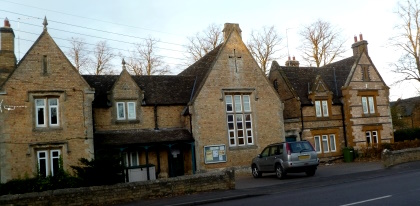|
News for the Pews |

Home

27th May 2024
MondayReflection
************************
Tim Mackie and Jon Collins
'Bible Project' share
The Purpose of Parables
************************
Jesus often told parables that left his listeners puzzled or confused.
Yet Jesus used parables as a key way that he announced the coming Kingdom of God among a new kind of people.
Most of Jesus' parables addressed situations very familiar with his ancient listeners.
By talking about familiar situations, Jesus introduced concepts of God's Kingdom into the minds of his listeners.
Instead of making points more clear, people were often puzzled and surprised by Jesus' parables.
The parables are one of the many ways that Jesus launched his mission of announcing, and bringing into reality, the reign and rule of God among a new kind of people.
Imagine an ancient Israelite farmer who hears the parables of Jesus.
For this farmer, the story of Israel's history is deeply immersed in his imagination.
He hopes for God's deliverance from Roman occupation.
One day, Jesus comes to town and tells a story:
"The Kingdom of God is like a man who casts seed upon the soil;
and he goes to bed at night and gets up by day, and the seed sprouts and grows - how, he himself does not know.
The soil produces crops by itself; first the blade, then the head, then the mature grain in the head.
But when the crop permits, he immediately puts in the sickle, because the harvest has come."
Jesus spoke about the Kingdom of God in the language of their daily lives.
He said, "How shall we picture the Kingdom of God.
It is like a mustard seed, which, when sown upon the soil, though it is smaller than all the seeds that are upon the soil, yet when it is sown, it grows up and becomes larger than all the garden plants and forms large branches; so that the birds of the air can nest under its shade."
These simple stories stuck in the minds of their ancient readers, and also allowed them to begin puzzling about the nature of God's Kingdom.
Used by Jesus, these parables often created more questions than answers and caused their readers to think in new ways about God's Kingdom.
This, combined with Jesus' notable activity of healing and welcoming outsiders, challenged ancient understandings of God's Kingdom.
N. T. Wright has said that the parables were prompted by Jesus' need to explain what he was saying and doing with the rest of his mission.
Jesus uses parables in a way that requires listeners to work for them.
This is often contradictory with how many people today interact with the parables of Jesus, expecting their message to be immediately applicable to us.
In the famous parable of the Good Samaritan, Jesus uses a story to expose a deep contradiction in the listener's perspective.
Instead of answering a question, Jesus uses parables as a subversive tool to correct unspoken assumptions in his day.
Jesus was 'riding into Jerusalem' as the returning master to hold the servants (the leading priests) accountable.
Jesus' parables are often thought about as moral stories - how do you live in a right way?
But Jesus wasn't telling these so that you could have the right moral ideals.
His primary focus was so that you understood what he was doing.
More insight on this from N. T. Wright.
"As part of his campaign, Jesus told stories...
They were, for the most part, not simply 'illustrations,' that is, preachers' tricks to decorate an abstract thought or complicated teaching.
If anything, they were the opposite.
Jesus' stories are designed to tease, to clothe the shocking and revolutionary message about God's Kingdom in garb that would leave the listeners wondering, trying to think it out.
They were stories that eventually caused Israel's leaders to decode his rich message in such a way as to frame a charge against him, either of blasphemy, sedition, or 'leading the people astray.'
Whatever the parables are, they are not, as children are sometimes taught in Sunday school, 'earthly stories with heavenly meaning.'
Rather, they are expressions of Jesus' shocking announcement that God's Kingdom was arriving on earth as in heaven."
- N. T. Wright, Simply Jesus.
Instead of reading a parable and asking, "How is this parable about me and my relationship to God?", we should reverse it and ask, "How is this about Jesus and his inauguration of God's Kingdom?"
When we start there, then we begin to see the new way of living that Jesus began with his announcement of the Kingdom arriving through him.
><(((°>
This is an edited version.
The full article and Bible references are avaiable on request
Bible Project
Tim Mackie and Jon Collins were tossing around ideas about how to help people read through Scripture while avoiding the common pitfalls and misunderstandings.
Combining Tim's deep biblical understanding and Jon's passion for visual storytelling, they created their first two videos in 2014 and put them online for free.
We want to help people everywhere become life-long students of Scripture.
We are a nonprofit, crowdfunded organization that makes free resources like videos, podcasts, articles, and classes to help people experience the Bible in a way that is approachable and transformative.

Contact the Rector
The Revd.
Nic.Edwards
The Rectory,
Church Lane,
BUGBROOKE,
Northampton,
NN7 3PB
Land Line: 01604 - 815496
(Can be accessed from the mobile device)
Mobile: .....
E-mail:
thebeneficeofbhkandr at gmail dot com
Contact the Benefice Office
Sunday School Rooms, Church Lane,
BUGBROOKE, Northampton, NN7 3PB
Land Line: 01604 830373
E-mail:
thebeneficeofbhkandr at gmail dot com
Mon., Tues., Wed,, Thur., Fri.
9:00am to 11:30am

For Baptism bookings (Christenings)
to arrange an appointment please contact
the Benefice Office.
For Wedding bookings:
please contact the Benefice Office to arrange
an appointment.
Who Made This?
Seeing as you asked, if you can give helpful
advice or report factual corrections and
'deliberate mistakes',email:-
regparker3 at gmail dot com
Email addresses shown using words in an
attempt to avoid 'spam',
Type the email address replacing 'at' with '@',
and 'dot' with '.'
|



